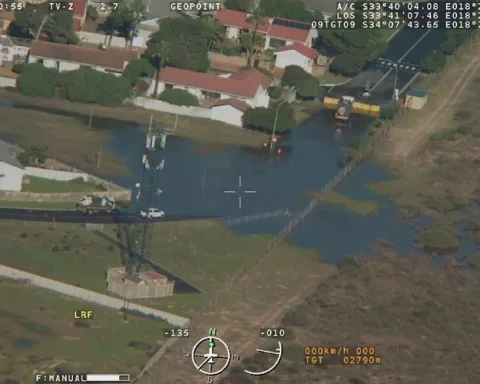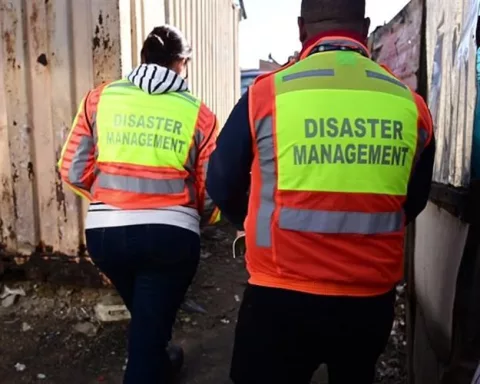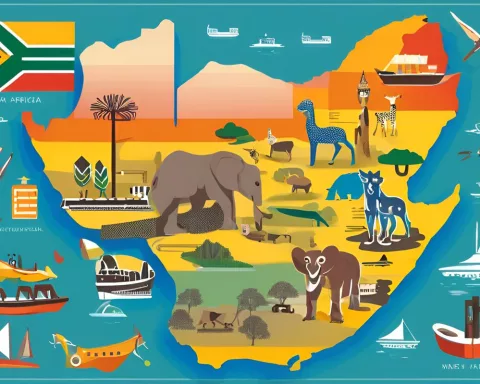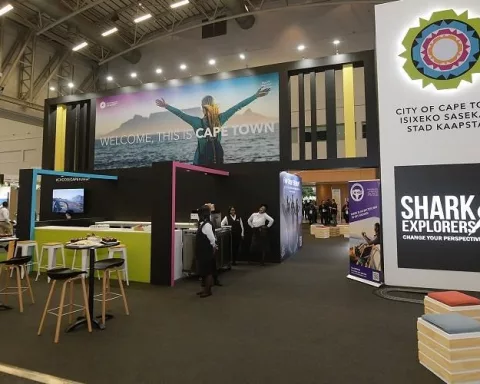The recent extreme weather event in Cape Town has had a significant impact on the region’s tourism and hospitality industry, with many businesses forced to temporarily close due to damages. The hardest-hit towns were Franschhoek, Kleinmond, Hermanus, Betty’s Bay, and McGregor. Accommodation facilities and restaurants were among the businesses most affected, and despite many having insurance coverage, some policies did not cover all damages and losses incurred. It is crucial for businesses to adapt and build resilience to prepare for potential future disasters.
Recently, Cape Town and the Western Cape region have experienced extreme weather events, leaving a notable impact on various sectors, including tourism and hospitality. In response, the Western Cape Department of Economic Development and Tourism has been working to gather vital information regarding the storm’s detrimental effects on tourism and hospitality businesses throughout the area. This article will explore the department’s initial findings and examine the challenges faced by businesses in the hardest-hit towns.
The Cape Storm: A Synopsis
Over the Heritage weekend, the Western Cape faced an intense storm, resulting in floods across numerous regions. According to the preliminary findings from the Western Cape Department of Economic Development and Tourism, damages were primarily concentrated in the Overberg and Cape Winelands areas. Over 60% of businesses in these regions were forced to temporarily close. The towns most severely impacted by the flooding include Franschhoek (11.81% respondents), Kleinmond (9.45%), Hermanus (8.66%), Betty’s Bay (7.87%), and McGregor (7.09%).
Businesses and Organizations Impacted
A significant proportion of the businesses affected by the severe weather were privately owned establishments, comprising 91% of total responses. However, government-owned attractions, like parks, botanical gardens, resorts, and campgrounds, also experienced damages.
A Detailed Examination of Affected Properties
The heaviest hit properties were accommodation facilities (38% of respondents), followed by restaurants, bars, and cafes (19%), wine tourism sites (8%), trail networks (6%), and retail shops (6%).
Insurance and Business Recovery
In the wake of the storm, many businesses found themselves dealing with damages and losses. Interestingly, 44% of respondents claimed to have insurance coverage. However, some noted that their policies did not cover all of the damages and losses incurred. Moreover, 26% of respondents were uncertain about whether their insurance would cover them, while 29% had no coverage at all. This situation emphasizes the uncertainties businesses confront in the aftermath of such disasters.
The Broad Impact of the Storm
Damage reports were not restricted to the Overberg and Cape Winelands regions and extended as far as George, demonstrating the widespread nature of this extreme weather event.
Discovering Post-Storm Cape Town
Despite the recent catastrophe, Cape Town and its neighboring areas continue to attract tourists and locals. For those interested in exploring and supporting the region’s tourism industry, there are fantastic deals on cars available for under R100,000. As the city and its businesses focus on recovery, visitors can still enjoy the stunning beauty that Cape Town has to offer.
The Significance of Adaptation and Resilience
The extreme weather event that hit Cape Town serves as a stark reminder of the importance of businesses, particularly those in the tourism and hospitality sector, adapting and bolstering their resilience amid unpredictable weather conditions. As climate change continues to alter weather patterns worldwide, such events are expected to become more frequent and severe. Businesses should actively evaluate their risk management strategies and insurance policies to ensure they are adequately prepared for any potential disasters.
The recent Cape storm has had a substantial impact on the tourism and hospitality sector in the Western Cape, with numerous businesses enduring temporary closures or damages. The Western Cape Department of Economic Development and Tourism’s initial research highlights the extent of the damages, the types of businesses affected, and the struggles faced by business owners regarding insurance coverage. Moving forward, it is essential for businesses in the region to build resilience and adapt to the increasing likelihood of extreme weather events, ensuring that Cape Town and its surroundings remain popular and flourishing tourist destinations.
What was the recent extreme weather event that hit Cape Town?
The recent extreme weather event was a storm that caused flooding across numerous regions in Cape Town and the Western Cape.
Which towns were hardest hit by the storm in Cape Town?
The hardest-hit towns were Franschhoek, Kleinmond, Hermanus, Betty’s Bay, and McGregor.
Which businesses were most affected by the storm in Cape Town?
Accommodation facilities and restaurants were among the businesses most affected by the storm in Cape Town.
Did businesses affected by the storm have insurance coverage?
44% of respondents claimed to have insurance coverage. However, some noted that their policies did not cover all of the damages and losses incurred. Moreover, 26% of respondents were uncertain about whether their insurance would cover them, while 29% had no coverage at all.
Did the storm only affect the Cape Winelands and Overberg regions?
No, the storm also caused damages in George, demonstrating the widespread nature of the extreme weather event.
Can tourists still visit Cape Town and its neighboring areas after the storm?
Yes, tourists can still visit Cape Town and its neighboring areas, and there are fantastic deals on cars available for under R100,000.
Why is it crucial for businesses in the tourism and hospitality sector to build resilience?
As climate change continues to alter weather patterns worldwide, extreme weather events are expected to become more frequent and severe. Businesses in the tourism and hospitality sector must build resilience to prepare for potential future disasters.
What should businesses in the tourism and hospitality sector do to prepare for future disasters?
Businesses in the tourism and hospitality sector should evaluate their risk management strategies and insurance policies to ensure they are adequately prepared for any potential disasters. It is vital to adapt and build resilience amid unpredictable weather conditions.













